Written By Zak Attack
A dramatic journey through the dreck we all know and love
Why Did I Watch This?
I wanted Week 4 of Hercules Month to really come full circle in anticipation of the upcoming Dwayne “The Rock” Johnson film, Hercules. The most obvious way to do that was with the other Hercules movie that came out this year: The Legend of Hercules.
How Did I Watch It?
I watched this via a Netflix DVD on an inebriated Friday night
What Did I Watch?
The Legend of Hercules is marketed as a Hercules origin story and it’s almost cute that anyone ever believed this would spawn a “franchise”. The film begins with Hercules’ foster father, King Amphitron (a perpetually growling Scott Adkins), defeating an enemy in single combat and winning a kingdom. As he brags to his wife, Queen Alcmene (Roxanne McKee), she bristles at his savagery and runs away to pray to the gods. An uncharacteristically chill Hera comes down and tells Alcmene that Zeus will give her a son who will save the people from the influence of the barbaric king. After a strange sex scene with an invisible Zeus she gives birth to Hercules (Kellan Lutz), who she mysteriously names Alcides. 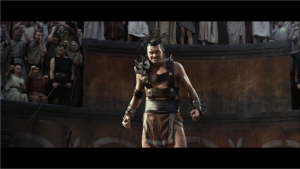
And the rest really just plays out like a Gladiator remake. When the main character is seen as a threat to the throne by his snivelling adopted brother (Liam Garrigan), he is sent to be killed. Everyone thinks the assassination is successful, but he is instead sent to the fighting pits far away from the city where he makes a name for himself fighting other gladiators in ridiculous armor. He eventually progresses up the ranks (supported by a portly, ex-gladiator mentor) and makes his way to his home city where the villainous “brother” has been pushing himself on the protagonist’s love interest (Gaia Weiss). Our hero uses his fame from the pits to symbolically help foment a revolution against the evil leader. This is where the movies differ, however. Instead of staying a gladiator, Alcides accepts that his actual name is Hercules and he leads an army of deserters against their former king in a huge battle. He finally finds himself fighting Scott Adkins. At this point he prevails, wins back his love, gets her pregnant, and lives happily ever after.
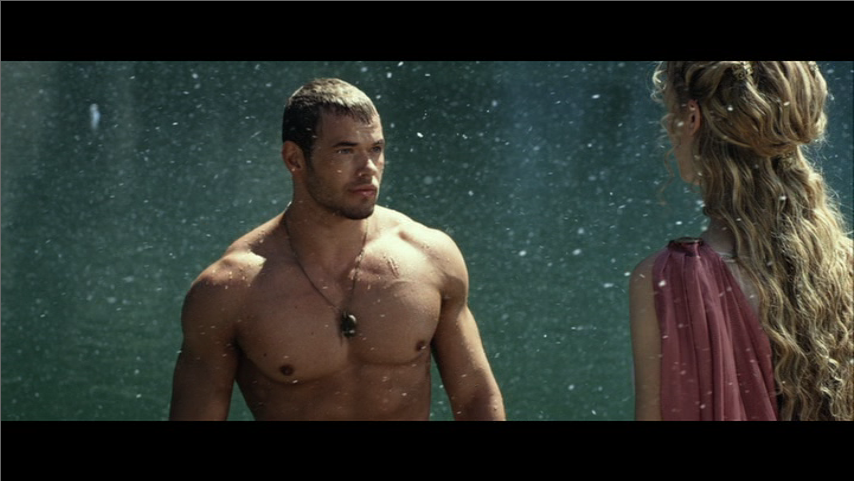 I guess it’s played this way for the Twilight crowd, but The Legend of Hercules definitely feels like a romance in the vein of The Loves of Hercules (Part II?). The perpetually “I just put on chapstick”-looking Lutz is a bit of a pretty boy, tasked with making eyes at his lady friend for a disproportionate amount of time for an action movie. As a result, she seems to be his main motivation for everything he does What’s even more frustrating is devoting 20% of your running time to a love story with two leads who have no chemistry and no relatable moment of “love” in the screenplay. Yea, he’s a slave, but what’s really important is getting back to save his damsel in distress because of that time they boned in the tall grass.
I guess it’s played this way for the Twilight crowd, but The Legend of Hercules definitely feels like a romance in the vein of The Loves of Hercules (Part II?). The perpetually “I just put on chapstick”-looking Lutz is a bit of a pretty boy, tasked with making eyes at his lady friend for a disproportionate amount of time for an action movie. As a result, she seems to be his main motivation for everything he does What’s even more frustrating is devoting 20% of your running time to a love story with two leads who have no chemistry and no relatable moment of “love” in the screenplay. Yea, he’s a slave, but what’s really important is getting back to save his damsel in distress because of that time they boned in the tall grass.
In general, Lutz doesn’t really pull off a lot of what he is supposed to do. In addition to being the smallest Hercules we’ve met this month, he’s also the least charismatic. At least part of this is due to the “origin story” technique of making him think he is a regular guy named Alcides for most of the film. Either way, this is by far the most self-doubt we have (and hopefully ever will) see in a film version of Herc. Case in point: his Braveheart-like speech to his soldiers that proves he has accepted his destiny is delivered through a lackluster mutter that slowly turns to something that can only vaguely be described as “yelling”. Even worse, in lieu of casting someone like The Rock or Arnold Schwarzenegger, the filmmakers made Hercules seem strong by continually disobeying the laws of physics. At one point he’s shot in the chest with three arrows and we neither see immediate blood nor a later healing process. 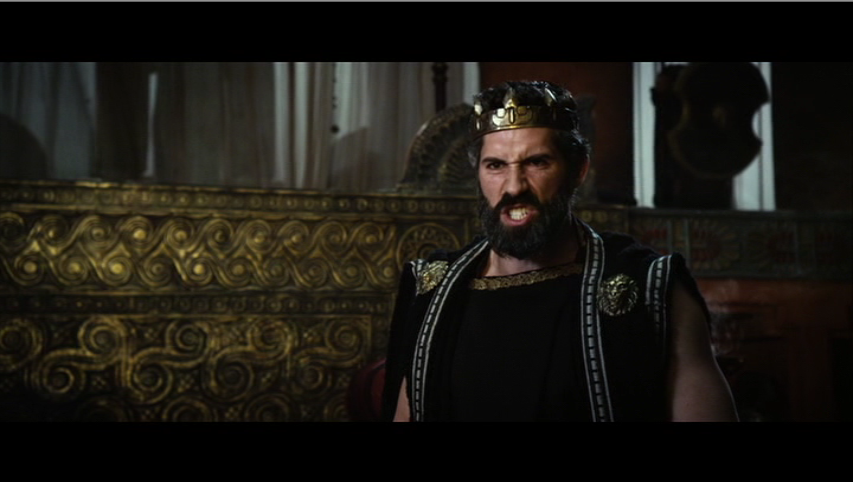 Then he knocks over people with what looks to be a flick of his wrist at most. It’s hard to believe in a film’s danger when the immortal character is never truly challenged.
Then he knocks over people with what looks to be a flick of his wrist at most. It’s hard to believe in a film’s danger when the immortal character is never truly challenged.
Scott Adkins on the other hand (famous martial artist turned actor) yells every line with an appropriately blistering anger. He may only be 9 years older than Lutz, but he carries the role with enough authority that he feels like Hercules’ superior in every way. Adkins is also the only person in the film (besides the underused Spartacus actor Liam McIntyre) who pulls off something approaching mythic intensity. He exudes the right level of Shakespearean camp to feel give this 3D CGI-fest a somewhat grounded feel.
Highlight?
The opening credits of The Legend of Hercules are actually quite impressive: A tracking shot beginning at the bottom of the sea floats up through dead bodies, flying arrows, helmets, and other signs of battle. The sound effects swell as the camera emerges from the water, passes docked galleys, and follows a rushing army on the shore of Argos. Then we find ourselves passing through smoke and debris as soldiers are felled left and right by catapults and spears. It rises above a castle wall, passing by archers, into the flaming, besieged city. The next cut doesn’t happen until we enter a massive courtyard filled with two opposing armies about to clash. It’s a dynamic way to start a movie, and unfortunately nothing for the remainder of the 99 minute running time even approaches that level of craft.
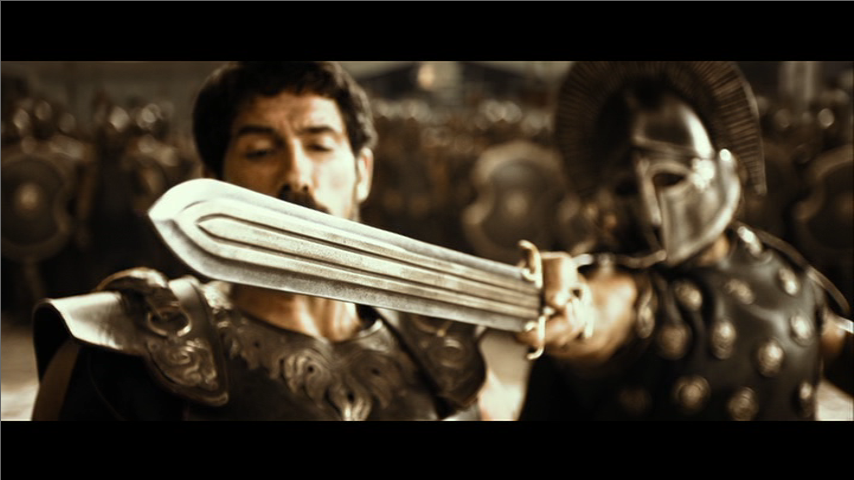 However, (and you may have noticed this with all the talk of arrows and catapaults), the one major issue that is made all too apparent with this type of scene is that The Legend of Hercules does not want you to forget it was originally shown in 3D. The film consistently utilizes slow-motion as if to say “Hey, look at this thing that’s coming RIGHT IN YOUR FACE!” In some of the more atmospheric scenes they even have flower petals or bits of tree pollen floating around in the foreground and background to give the illusion of depth. Maybe this worked really well in the theatre, but watching it 2-dimensionally makes everything look extra gimmicky and laughably unreal.
However, (and you may have noticed this with all the talk of arrows and catapaults), the one major issue that is made all too apparent with this type of scene is that The Legend of Hercules does not want you to forget it was originally shown in 3D. The film consistently utilizes slow-motion as if to say “Hey, look at this thing that’s coming RIGHT IN YOUR FACE!” In some of the more atmospheric scenes they even have flower petals or bits of tree pollen floating around in the foreground and background to give the illusion of depth. Maybe this worked really well in the theatre, but watching it 2-dimensionally makes everything look extra gimmicky and laughably unreal.
Lowpoint?
As implied above, the visual effects are incredibly disappointing. In a climactic scene where Zeus charges Hercules’ sword with lightning thereby giving him a electricity whip or sorts, it’s just blue CGI crackle being swung around and making people fall over. I think I would even prefer the composite shots of Lou Ferrigno’s Hercules movies any day! In an even worse display, the Nemean lion in the film is about as convincing as the wolf in The Neverending Story. 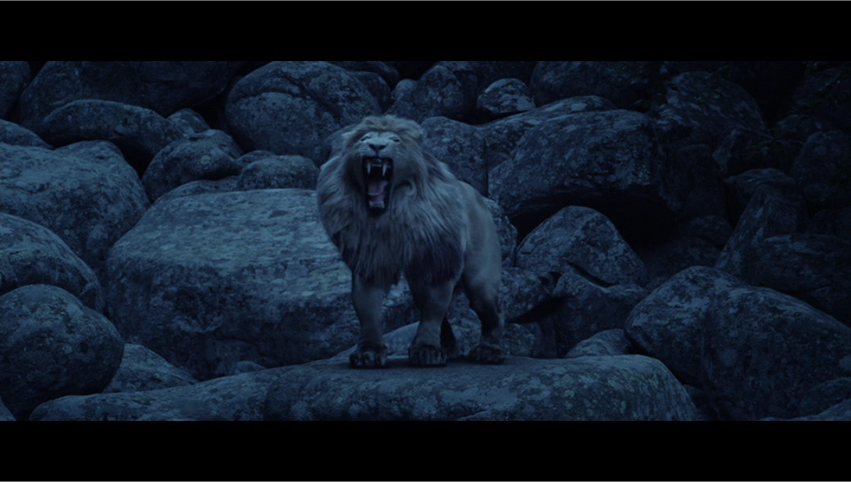 The animators try to cover it up by giving the whole scene a blue tint and never showing the creature in close-up. This just becomes more obnoxious when we are treated to a very faraway shot of Hercules anticlimactically choking the beast out.
The animators try to cover it up by giving the whole scene a blue tint and never showing the creature in close-up. This just becomes more obnoxious when we are treated to a very faraway shot of Hercules anticlimactically choking the beast out.
That being said, the effects issue is really a symptom of a larger problem. Even that admittedly cool scene I listed as a “highlight” is hindered some by the overall execution. As soon as we get to the meat of the battle, we are clearly on a sparsely decorated set with a CGI background. To put it more succinctly, they tried to rip-off 300 but the decisions made in the filmmaking process were all wrong. This isn’t a movie, but a product of pure marketing. They made a stylized film because that is supposed to put butts in seats (it didn’t), and paired it with a decidedly unstylized story.
While 300 used green screen to make the world seem more vibrant and comic book-like, the technology here makes everything look flat and gray. The world of The Legend of Hercules doesn’t (and shouldn’t) look “otherworldly”, instead it looks “fake” and “lazy”. Zack Snyder had a sense of space and filled that space with actual “stuff” while de-emphasizing the aspects of the frame that weren’t “real”. Meanwhile, Harlin’s film felt like an especially uninteresting stage setting of Waiting for Godot. And that, my friends, was the most depressing part of the movie: the big block of text at the end that said, “Directed by Renny Harlin”. While he’s never been the most respected of action directors, seeing him beholden to a style so unlike his own was kind of sad. Especially when said style is presented so ineptly.
Was It Worth Watching?
Nope. Watch 300 again… or The Immortals… or even 300: Rise of an Empire. Or if you want to watch a movie that does not feel like a music video, watch Gladiator! Just not this.
Part of me wonders if this could have been a touch better if it copied those films a little more and aimed for an R-rating. A bloodless gladiator movie with no stakes just doesn’t work for me. There are clues this was the original intent. A lot of scenes cut just short of showing gore, that it feels like those “missing” shots were initially filmed. At one point, Hercules swings a sword and the next shot shows him dropping his opponents decapitated head. It’s subtle enough that I had to rewind to be sure, implying that something was left on the editing room floor.
So What Did I Learn this Month?
These last few weeks primarily came into fruition because of the question: “Why did they make two Hercules movies in the same year?” The character is almost as old as the human race’s custom of oral tradition, and we are still attempting new stories in 2014.
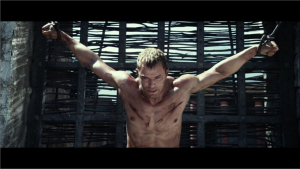 So what is the appeal of Hercules? He’s a character in DC and Marvel comics, was the subject of a popular tv show with Kevin Sorbo, and has even had a Disney feature based on him. He’s not a particularly noble hero, as he typically goes around sacking cities and just being strong. He even killed his children at one point (admittedly driven mad by Hera, but it still happened). So why is he, of all people/gods, one of the most well-known figures of Greek/Roman mythology? Is it because he’s so strong and seemingly does whatever he wants? Or is it that Hercules is an early incarnation of the idea of a deity made flesh that we know as Jesus? Similar to what we see in the New Testament, Hercules is a God amongst men who performs supernatural feats and is able to transcend humanity despite his humble origins. But why him instead of, say, Gilgamesh or Beowulf?
So what is the appeal of Hercules? He’s a character in DC and Marvel comics, was the subject of a popular tv show with Kevin Sorbo, and has even had a Disney feature based on him. He’s not a particularly noble hero, as he typically goes around sacking cities and just being strong. He even killed his children at one point (admittedly driven mad by Hera, but it still happened). So why is he, of all people/gods, one of the most well-known figures of Greek/Roman mythology? Is it because he’s so strong and seemingly does whatever he wants? Or is it that Hercules is an early incarnation of the idea of a deity made flesh that we know as Jesus? Similar to what we see in the New Testament, Hercules is a God amongst men who performs supernatural feats and is able to transcend humanity despite his humble origins. But why him instead of, say, Gilgamesh or Beowulf?
I think it is not necessarily the character himself, but the stories that stand the test of time, which, in turn elevates the myth of the character. Beowulf has one epic poem while Gilgamesh had twelve tablets of stories. Twelve tablets? Phooey and pshaw. Hercules had twelve labors, and that’s barely half his story. In fact, one could call Hercules the first comic book character. He fought in arc after arc and was celebrated by several different forms of folklore that grew his legend. 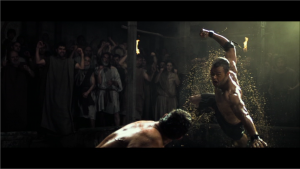 Much like Superman, his longevity has forced him into conflicts where he had to use his wits (convincing Atlas to help him steal the apples of Hesperides), his strength (killing the giant Antaeus by holding him over his head), and even both (diverting entire rivers in order to clean the Aegean stables in a single day). He’s one of the few examples of a good character who works simply because he’s the ultimate hero who’s been given the tools to triumph at all costs.
Much like Superman, his longevity has forced him into conflicts where he had to use his wits (convincing Atlas to help him steal the apples of Hesperides), his strength (killing the giant Antaeus by holding him over his head), and even both (diverting entire rivers in order to clean the Aegean stables in a single day). He’s one of the few examples of a good character who works simply because he’s the ultimate hero who’s been given the tools to triumph at all costs.
While there may be some controversy about the upcoming film and its comic origin, that doesn’t change the fact that the character changes with each telling. Hercules has been through gritty reboots, modern-day retellings, and kid’s fare alike and shows no sign of slowing down. I may not be paying to see the upcoming film in the theatre, but I will persevere and one day will have watched the entire Hercules oeuvre… and probably still ask myself “Why?”
Hercules Month:
Hercules Month Part 1: The Loves of Hercules
Hercules Month Part 2: Hercules / The Adventures of Hercules
Hercules Month Part 3: Hercules in New York
Hercules Month Part 4: You just read it!
Zak has been an avid movie fan since his mom made him cover his eyes before the “icicle stabbing” when they rented Die Hard 2 in 2nd grade. As a consolation, in 6th grade he got straight A’s so she gave him the entire Die Hard trilogy on VHS. The rest is history.
All images courtesy of Millennium Films

